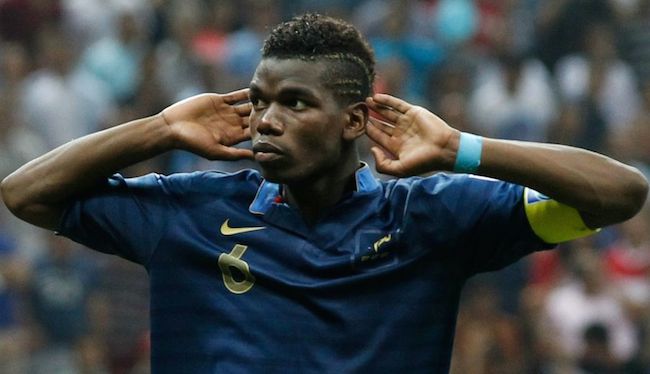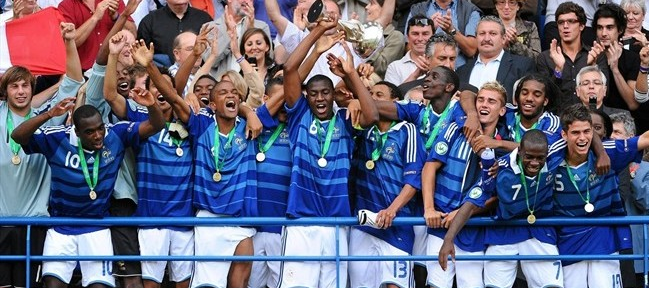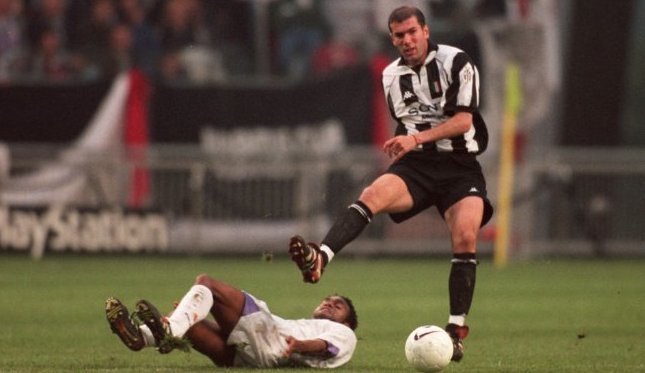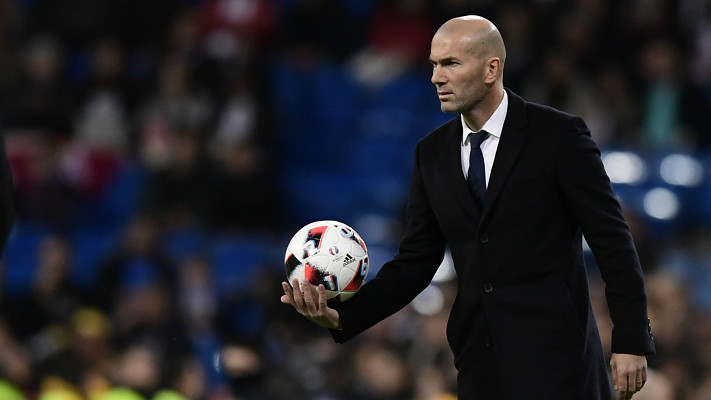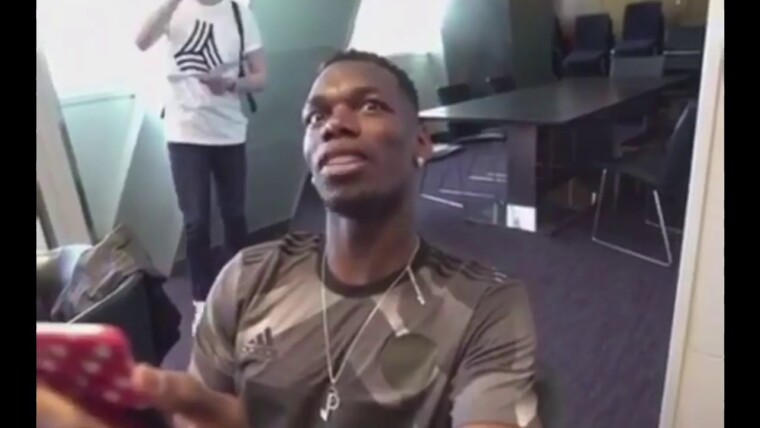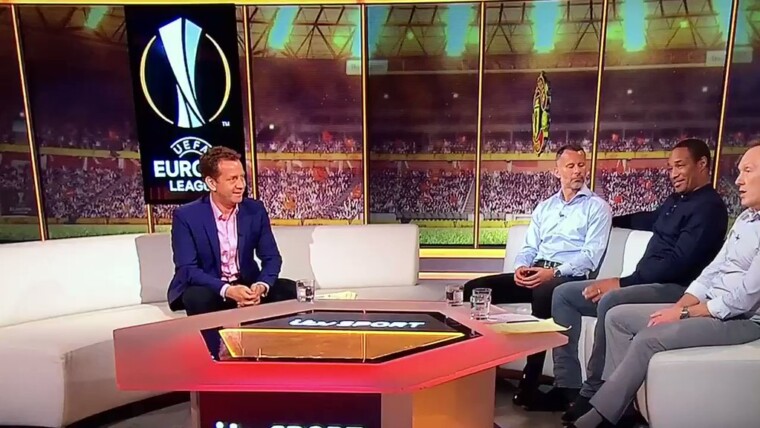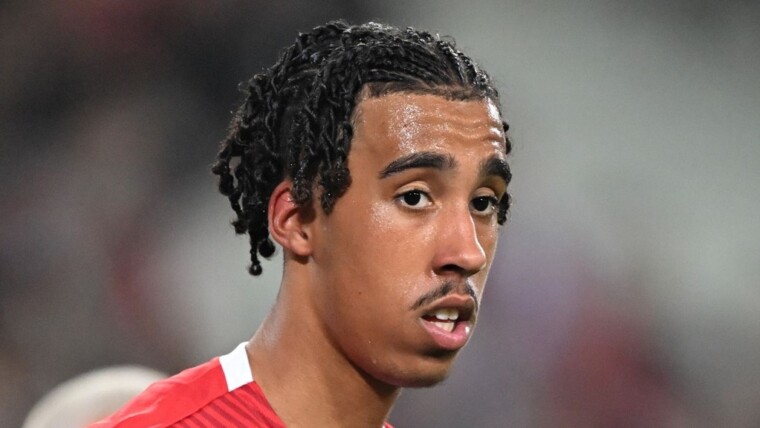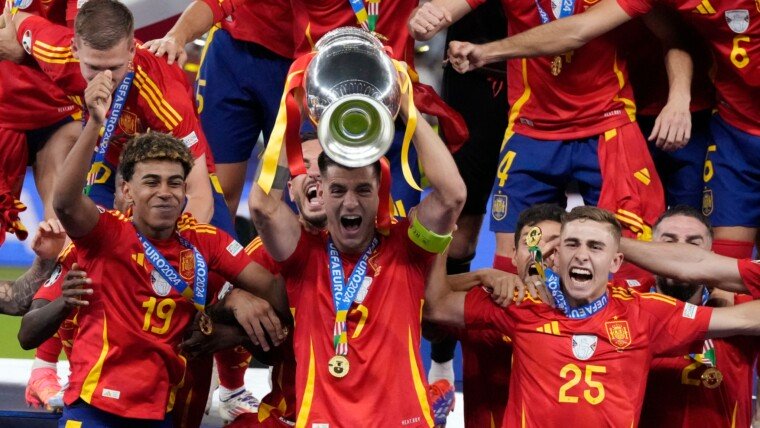France remains one of the finest producers of young footballers on the planet. According to the stats, at least.
The CIES Football Observatory in Switzerland recently released a study listing the football clubs that successfully train the most young footballers. It compiled its figures by looking at where players currently performing in Europe’s ‘Big Five’ leagues – the Liga, Premier League, Bundesliga, Serie A and Ligue 1 – spent their youth academy years.
Lyon (4th) and PSG (5th) were in the top five, having produced 33 and 27 players respectively. Rennes (joint 6th), Bordeaux (joint 9th) and Lens (joint 9th) also made the top 10.
In all, 17 French clubs featured in the top 50. That was seven more than second-place Spain.
Ligue 1’s pre-eminence is only partly explained by the lack of transfer-market muscle that forces clubs to promote players from within. Take out the youth products still on the books of their first club and Ligue 1 still has a prominent ranking.
PSG, for example, has produced 22 players currently playing elsewhere, such as Kingsley Coman (Juventus) and Youssouf Mulumbu (West Bromwich Albion). Rennes – whose academy was voted France’s best six years in a row (2006 to 2011) – has 19 graduates at other clubs. The figures are impressive, and France’s reputation in youth development well-established.
But is France’s academy system really as good as this survey suggests?
I ask because I spend long hours standing by the side of astroturf pitches all over France watching some of the country’s finest U17 and U19 players.
Most weekends I see young hopefuls from France’s leading clubs taking potentially vital steps towards becoming professional footballers.
The standard is good. Sometimes it’s very good. Occasionally you see something that would get out of your seat if you had one (you have a barrier to lean on if you’re lucky, although the half-time coffee’s normally excellent).
But having watched around 100 youth games (U16 to U21) over the past three years, the truth is that many games are a disappointment. There is little goalmouth action and few moments of individual brilliance. Power and athleticism are valued over skill and imagination.
Virtually every team sets-up in a 4-2-3-1. Tactical adjustments in-play are rare. There’s little scope for players to think for themselves.
Sometimes it’s difficult to reconcile what my eyes tell me with what the stats say.
There are other reasons to question France’s youth graduate programme. Spearheaded by Juventus’ magnificent Paul Pogba, France won the World U20 Championship last year. But other recent results at age-group tournaments have been moderate.
France won the European U19 Championship in 2005 and 2010. But it’s 10 years since they won the European U17 Championship. They last made the semi-finals of the World U17 Championship in 2001. The last time they qualified for the European U21 Championship was 2006.
So the picture is more complicated than it first appears. And perhaps the key to understanding it is a half-remembered quote.
I seem to recall Fabio Capello once saying French players “do the basics well.” I can’t find the quote anywhere so don’t know whether the ex-AC Milan manager actually said this.
But if he did, he was spot on. French players learn the basics well. Very well. And that’s exactly why the French system works. French coaching methods sometimes look and feel unimaginative and repetitive, but they reap long-term rewards. The players that come out of the system may lack the spontaneous brilliance of their Germain, Spanish and arguably Portuguese peers, but they emerge equipped with a solid grounding in virtually every basic element of the game.
An example. In the U17 and U19 games I see, players are hardly ever caught out of position. French youngsters are drilled over and over again in where they should be on the pitch. They learn how and where to place themselves in relation to their nearest opponent and team-mates. (This partly explains why games can be uninteresting to watch.)
Technique matters, of course – but here, again, it’s the basics that count. Short passing must be crisp and sharp. Full-backs and centre-halves are taught to hit crossfield passes into zones rather than the feet of team-mates. Risk-taking in possession is kept to a minimum. Get too clever and you’ll soon hear the coach bellowing at you from the touchline.
That’s another thing: pats on the back – metaphorically or otherwise – are in short supply. I’d say the praise:reprimand ratio from academy coaching staff at games is around 1:6. Silence is your best friend – i.e. if the coach says nothing, it’s safe to assume you’re doing OK. Teacher friends tell me this reflects the French schooling system, which is more stick than carrot.
I sometimes feel sorry for the lads in French academies. Theirs can seem a pretty joyless existence, what with restrictive tactics on the pitch and tough love off it. Make it through the academy system and you can make it anywhere.
I remember – yes, this time I remember correctly – an interview Inter midfielder Yann Mvila and FC Porto forward Yacine Brahimi once gave. At the time the pair were recent graduates of that prolific Rennes academy. “Honestly, I found CFA [France’s reserve league] much harder than Ligue 1,” said M’Vila. “Me too,” Brahimi agreed. “My years playing CFA football were tough. Games were really difficult.” I understand why they say that. Coming out of the regimented atmosphere of a French academy can be a release.
Moving abroad is then like entering a hot-house finishing school. Top-level skills get layered on top of the tuition they received in France.
On arriving in England, for example, they learn how to play at a higher tempo and respond to more frequent changes of possession. Spain, Germany and Italy present their own challenges. Sometimes it’s all about finally having the freedom to express yourself.
The most glorious example of French youth academy graduates bolting high-end skills on to their French formative training came in 1996. That was when a generation of France players took advantage of the new Bosman ruling to quit their homeland for new challenges abroad. It was labelled ‘l’exode’ – “the exodus” – by the French sports press. And rightly so: during a remarkable three-month period that summer, Zinedine Zidane (Bordeaux to Juventus), Bixente Lizarazu (Bordeaux to Athletic Bilbao), Christophe Dugarry (Bordeaux to AC Milan), Lilian Thuram (Monaco to Parma), Franck Leboeuf (Strasbourg to Chelsea) and Youri Djorkaeff (PSG to Inter) signed for clubs outside France. Two years later les Bleus became world champions, adding the European Championship in 2000.
So perhaps the fact that I see a lot of forgettable U17 and U19 games but that French academies still manage to produce so many top-class graduates isn’t a paradox at all. It’s all about doing right things at the right time. The French system focuses on the basics; the rest can wait.
French youngsters get what careers officers like to call transferrable skills. It explains why players such as Bacary Sagna and Yohan Cabaye can move abroad and develop into better players than most people realised they were. It explains why Jeremy Mathieu can perform unremarkably in Ligue 1 until the age of 25 yet not look out of place at Barcelona at 30.
There are plenty of things wrong in French football, but the academy programme is not one of them. After more than two decades near the top, it remains one of the best in the world.
Other posts by James Eastham

